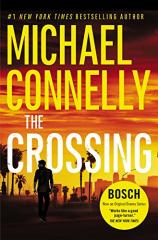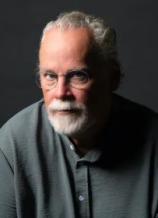The Crossing: A Harry Bosch Novel
Review
The Crossing: A Harry Bosch Novel
We could discuss at some length the whys and hows concerning the continuing and increasing popularity of the Harry Bosch series. For me, one of the biggies has been the manner in which author Michael Connelly chucks a hand grenade or two into Bosch’s professional and personal lives at regular intervals while advancing his age to make him perhaps just a little more vulnerable physically. The blowback from the events of THE BURNING ROOM began to manifest themselves fully at the conclusion of that very worthy novel, setting up anticipation for the publication of the next book in the series, which is here and is more than worth the wait.
THE CROSSING is a title with multiple meanings. One applies to a term that Bosch uses to define a point in an investigation. It also echoes throughout the story as Bosch embarks on a career change --- crossing the aisle, if you will --- that he considers to be very temporary but will have major ramifications. The book begins with Bosch at loose ends. He has been more or less forced into retirement and is involved in litigation with the Los Angeles Police Department, his former employer. His days are spent rebuilding and restoring an old motorcycle and occasionally navigating the emotional minefield that exists between a parent and a teenage daughter. It’s not where he wants to be, though; he misses police work, particularly the investigation and detection he engaged in while working cold cases. His relationship with his former employer notwithstanding, Bosch is a cop at heart, through and through.
"THE CROSSING is a complex mystery, one in which the reader is given some but not all of the answers well ahead of Bosch. Part of the fun is watching Bosch catch something here and miss something there before eventually getting completely on the right track and smoking out the baddies."
This is the primary reason why he turns down an offer from Mickey Haller, his half-brother, to work for him on a case as a defense investigator. Haller --- the self-styled “Lincoln Lawyer” --- is representing a client who has been charged with the murder of an important and well-liked civic official who was married to a Los Angeles County sheriff. The case seems open and shut, given that the defendant is a former member of a street gang and left DNA at the scene of the crime. He also has an alibi, but it’s one he is trying to keep on the down-low. Bosch wants nothing to do with it, but thanks to Haller’s persistence, he finally agrees to investigate to see if anything is missing. It isn’t long before he finally becomes convinced of the client’s innocence and comes fully aboard.
This places Bosch in an unusual and difficult role. He is concerned with establishing the truth --- something in which defense counsel isn’t always interested --- and isn’t used to hiding evidence from the police. At the same time, he doesn’t want his friends and associates on the force to know that he temporarily has crossed over to the dark side. That’s the kind of secret that can’t be kept long, and when it’s revealed, the reaction is strong and immediate.
Meanwhile, Bosch is being shadowed by a couple of characters who have a vested interest in keeping everything as it was before he began his investigation. Their identities are revealed fairly early, but their reasons are dropped like breadcrumbs throughout the book. Bosch does his job very well, but soon endangers himself and others as the plot builds to a dramatic and violent double climax.
THE CROSSING is a complex mystery, one in which the reader is given some but not all of the answers well ahead of Bosch. Part of the fun is watching Bosch catch something here and miss something there before eventually getting completely on the right track and smoking out the baddies. As with the best of Connelly’s work, it moves well and quickly, even during the quiet parts. It’s not a book that you will want to set aside before finishing. And while it ends satisfactorily, there almost certainly will be more blowback (both expected and unexpected) as the result of Bosch’s choices and associations.
Oh, one other thing: Connelly names a pair of minor characters after some major players in the publishing world. See if you can spot them.
Reviewed by Joe Hartlaub on November 6, 2015





